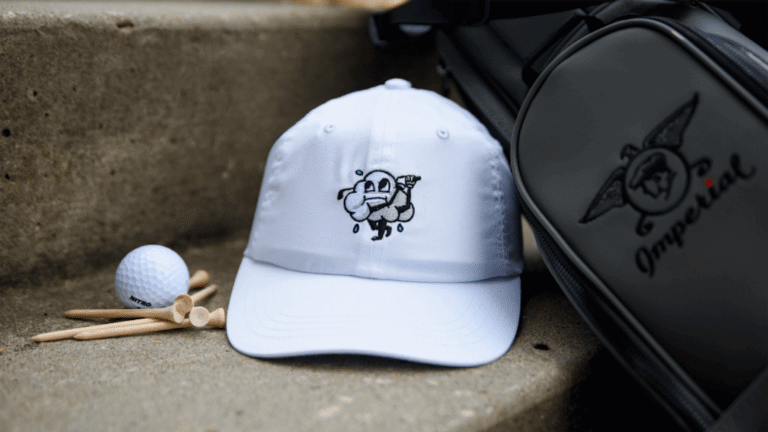
Lil Mabu
Who Is Lil Mabu?
Lil Mabu, born Matthew Peter DeLuca, is an American drill rapper, songwriter, and internet personality from New York City. Rising to prominence in the early 2020s, he is known for mixing gritty drill beats with a polished, private-school persona that has both puzzled and fascinated audiences. His image — part rapper, part satirist — has made him one of the most unique and talked-about Gen Z artists. Despite coming from a privileged background, Lil Mabu has found widespread success in a genre typically dominated by artists from marginalized communities.
How Old Is Lil Mabu?
As of 2025, Lil Mabu is 19 years old, having been born on April 4, 2005. He grew up in Manhattan, in a wealthy family, and attended elite private schools. This background, while uncommon in the drill scene, has become central to his brand. Rather than pretending to be someone he’s not, he leans into his upper-class upbringing, often using it as a tool for satire or lyrical contrast.
Early Life and Education
Raised in the Upper East Side, Lil Mabu is the son of Peter DeLuca, a prominent New York funeral director. He attended Collegiate School, one of the most prestigious prep schools in the country. His background became a viral talking point, especially when contrasted with his aggressive lyrics and involvement in New York’s drill scene. Mabu frequently uses this juxtaposition to challenge norms in hip-hop, asking whether authenticity in the genre must come from hardship, or whether intelligence and strategy can earn the same respect.
The Start of His Music Career
Lil Mabu began releasing music in 2019, but gained real traction in 2020–2021. Tracks like “Miss Me” and “Move It” began to circulate on platforms like YouTube and SoundCloud, showcasing his lyrical wit and creative visuals. His viral breakthrough came with “No Snitching” — a hard-hitting track made in collaboration with DD Osama. The song quickly exploded on TikTok, with thousands of videos using the audio and sparking countless memes. It wasn’t just the track that stood out — it was the sight of a private school kid rapping street bars with an ironic edge that got people talking.
Style, Persona, and the “Private School Drill” Wave
Lil Mabu’s style is often described as “Prep Drill” or “Private School Drill” — a subgenre he unintentionally pioneered. Unlike other drill rappers who emphasize street life, gang affiliations, and urban struggle, Mabu presents a stark contrast: he raps about SAT tests, prep school fights, and social media manipulation. His lyrics are laced with sarcasm, dark humor, and clever double entendres. Songs like “Mathematical Disrespect” showcase his ability to blend school-related references with hard-hitting flows. Instead of hiding his privilege, he turns it into a branding weapon, creating a new type of rap persona for the internet age.
Social Media Virality and Internet Strategy
A key part of Lil Mabu’s rise is his masterful use of social media. He regularly posts on TikTok, Instagram, and YouTube, where his skits, snippets, and behind-the-scenes content reach millions. Every release is paired with meme-worthy moments and highly shareable visuals. His engagement with fans — through comment replies, video duets, and viral challenges — keeps his audience deeply connected. Rather than relying on a label, Lil Mabu has effectively become his own marketer, director, and content strategist.
Popular Songs and Highlights
Lil Mabu has built an impressive catalog of songs that have gone viral across platforms:
- “No Snitching” (ft. DD Osama) – A viral TikTok anthem with millions of views
- “Mathematical Disrespect” – A witty, fast-paced song mocking math and flexing lyrical dexterity
- “Trip to the Hood” – A satirical take on visiting dangerous areas, played up with irony
- “Throw” – A more experimental track combining melody and raw aggression
These songs have garnered millions of streams on Spotify and Apple Music, and have become anthems for younger fans looking for something both catchy and intellectually ironic.
Criticism and Controversy
Not everyone is a fan of Lil Mabu’s approach. Critics often accuse him of cultural appropriation, arguing that he profits from a genre rooted in Black urban experiences while living a life of wealth and safety. Some also question his authenticity, claiming he’s more of a character than an artist. Lil Mabu, however, leans into this narrative — mocking his critics and often turning their arguments into bars. He’s openly self-aware, making it clear that he knows he doesn’t fit the traditional mold of a drill rapper. This transparency has won him respect from fans who see him as a disruptor rather than an imposter.
Industry Relationships and Collaborations
Despite initial skepticism, Lil Mabu has collaborated with some of the biggest names in the underground drill scene, including:
These collaborations helped him gain street credibility while exposing his music to new audiences. He has also hinted at working with mainstream artists and is believed to be fielding offers from major record labels — though he currently remains an independent artist, which gives him full creative control.
Net Worth and Business Growth
As of 2025, Lil Mabu’s net worth is estimated between $1.5 to $3 million, primarily from streaming royalties, merchandise sales, concerts, and brand partnerships. He’s involved in producing, editing, and marketing his own videos — a DIY approach that keeps costs low and profits high. Beyond music, he’s expressed interest in tech, digital branding, and entrepreneurship, showing signs of evolving into more than just a rapper. His approach mirrors the modern influencer-entrepreneur hybrid, positioning him for long-term relevance beyond the charts.
Cultural Relevance and Public Perception
Lil Mabu represents a new wave of artists who blur the lines between authenticity, satire, and performance art. In the TikTok generation, where irony and meme culture dominate, Mabu’s self-aware take on rap culture fits perfectly. For many, he’s a comedic genius and lyrical technician; for others, a clout chaser exploiting serious art. Either way, he’s impossible to ignore. He raises important questions about what rap can be in the 2020s: Does one have to live the life they rap about, or is it enough to know the culture, respect it, and bring something new to the table?
Comparison with Other Gen Z Rappers
In this new wave of Gen Z artists, Lil Mabu shares the spotlight with rappers like Luh Tyler, who is currently 18 years old (born February 20, 2006). Like Mabu, Luh Tyler made waves via TikTok with his chill delivery and viral hits like “Law & Order”, offering a softer, laid-back contrast to drill’s aggression. Both artists use internet virality to build their brands, though their styles differ significantly. While Mabu’s music is satirical and intense, Luh Tyler leans into smooth, Florida-influenced beats and relaxed flows.
What’s Next for Lil Mabu?
As of mid-2025, Lil Mabu continues to drop new singles and experiment with different sounds. Fans are eagerly awaiting his full-length debut album, and rumors of future collaborations with bigger names in the industry continue to circulate. With his evolving artistic style, digital savvy, and unique image, Lil Mabu is not just surviving — he’s thriving. Whether he stays in drill or branches into pop, comedy, or even acting, his cultural footprint is growing by the day.
Conclusion
At just 19 years old, Lil Mabu has done what many couldn’t: entered a deeply authentic, often rigid genre and made space for himself through irony, creativity, and clever positioning. While questions about authenticity may follow him, his impact on hip-hop, internet culture, and Gen Z music is undeniable. Whether you’re a fan or a skeptic, there’s no denying that Lil Mabu is part of a new movement reshaping what it means to be a rapper in the digital age.





